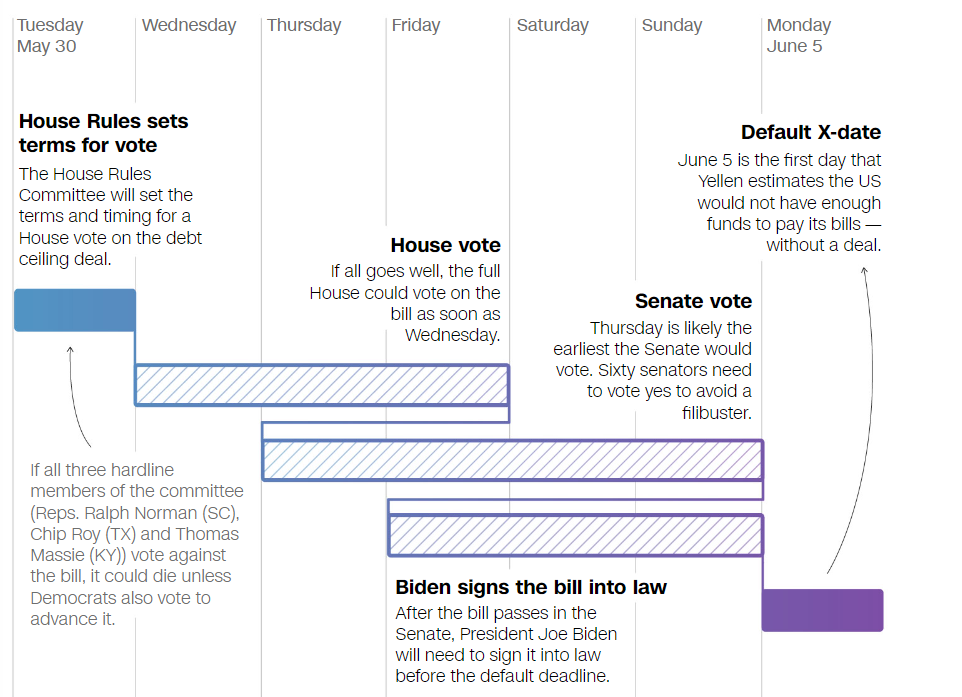The agreement announced on Saturday by President Biden and House Speaker McCarthy that outlines a debt-ceiling deal may prove to be the easy part. The struggle to avert a US government default this week now turns to the tricky path of navigating the legislation through both houses of Congress.
“I feel very good about it,” Biden told reporters on Monday. “I’ve spoken to a number of the members,” he said, including Senate Republican leader Mitch McConnell. “I spoke to a whole bunch of people, and it feels good.”
McCarthy is also upbeat about the deal. “After weeks of negotiations, we have come to an agreement in principle,” he said on Saturday. “We still have a lot of work to do but I believe this is an agreement in principle that is worthy of the American people.”
The “work” begins with today’s shepherding of the legislation through several powerful Republican-led House committees today. If the bill survives this political obstacle course, it moves on to a full House vote, perhaps as early as tomorrow (Wed., May 31). Assuming the deal receives a green light there, a Senate vote is next. If it survives in the upper chamber, it’s on to Biden’s desk, where he would sign it into law.

There are opponents of the deal on both sides of the political aisle and so there’s no guarantee that the bill will survive, at least in its present form. If there are substantial changes before it lands on the President’s desk, there will be political pressure from some Democrats to reject the bill.
White House budget director Shalanda Young summarized the risk when she told NBC’s “The Today Show” on Sunday that “This deal was compromise. Neither side gets everything they want.”
Nonetheless it’s likely that a bipartisan majority in the House and Senate will be needed to pass the bill on the assumption that some number of Democrats and Republicans will vote “nay”. In the narrow majorities in the House (led by Republicans) and a similar situation in the Senate (led by Democrats) a handful of defections on either or both sides ensures that passing the bill will be a precarious balancing act.
Several hardline conservatives have publicly complained that the deal does not sufficiently reduce future deficits. Meanwhile, some Democrats suggest that proposed changes to work requirements in programs such as food stamps could be a deal-breaker.
Biden, unsurprisingly, remains optimistic that the bill can swiftly move through Congress and become law by June 5, the earliest estimate of the so-called X-date, when the government will run out of money to pay its bills.
“There is no reason it shouldn’t get done by the 5th,” the President says. “I’m confident that we’ll get a vote in both houses and we’ll see.”
How is recession risk evolving? Monitor the outlook with a subscription to:
The US Business Cycle Risk Report